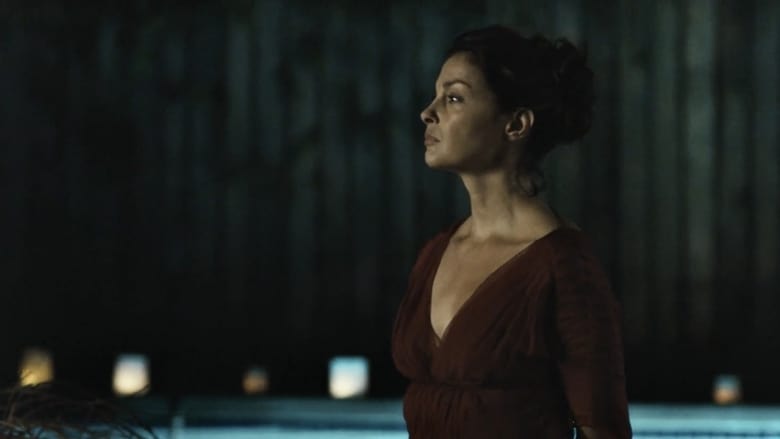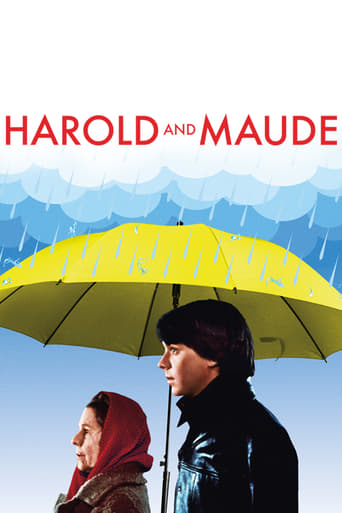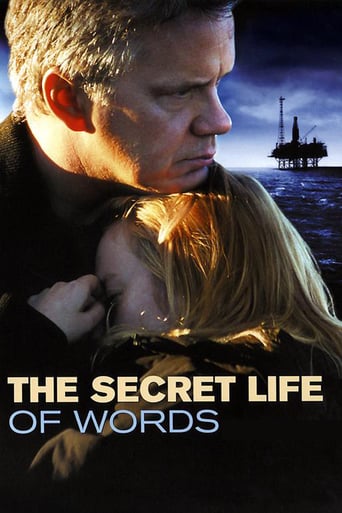Helen (2009)
On the outside, Helen has it all – a loving family and a successful career – but when her suppressed mental illness resurfaces, the world crumbles around her. Crippled by depression, Helen finds solace through her friendship with Mathilda, a kindred spirit struggling with bipolar disorder.
Watch Trailer
Cast


Similar titles
Reviews
Excellent, Without a doubt!!
It's hard to see any effort in the film. There's no comedy to speak of, no real drama and, worst of all.
It's the kind of movie you'll want to see a second time with someone who hasn't seen it yet, to remember what it was like to watch it for the first time.
The thing I enjoyed most about the film is the fact that it doesn't shy away from being a super-sized-cliche;
During the movie at time 55:35, in the parking lot sucker punching scene, you can see a GIANT MAT that the guy lands on after being punched.During the movie at time 55:35, in the parking lot sucker punching scene< you can see a GIANT MAT that the guy lands on after being punched.During the movie at time 55:35, in the parking lot sucker punching scene< you can see a GIANT MAT that the guy lands on after being punched.During the movie at time 55:35, in the parking lot sucker punching scene< you can see a GIANT MAT that the guy lands on after being punched.
German screenwriter and director Sandra Nettelbeck's third feature film which she wrote, is inspired by an article in the New Yorker magazine called "The Anatomy Of Melancholia" from 1998 by American writer Andrew Solomon. It premiered at the 25th Sundance Film Festival in 2009, was shot on location in Canada and is a Canada-USA-UK-Germany co-production which was produced by producers Christine Haebler and Judy Tossell. It tells the story about a professor named Helen Leonard who's life with her husband David and daughter Julie alters after she has a seizure. Helen is somewhat improved after meeting a doctor and befriending a woman named Mathilda who has been struggling with manic depression for several years, but as her kinship with Mathilda grows she becomes estranged from her family.Finely and engagingly directed by German filmmaker Sandra Nettelbeck, this quietly paced fictional tale which is narrated from multiple viewpoints though mostly from the protagonist's point of view, draws a humane and heartrending portrayal of a successful woman who becomes unrecognizable to her family after falling into a severe depression. While notable for it's naturalistic milieu depictions and fine production design by production designer Linda Del Rosario, this dialog-driven and tangible story depicts a mindful study of character and contains a great score by composer Tim Despic.This unsentimental psychological drama about mental illness and how it affects a 40-year-old woman's life, her personality and her family, is set in Canada and is impelled and reinforced by it's cogent narrative structure, substantial character development, compassionate characters and the fine acting performances by American actress Ashley Judd, Canadian actress Lauren Lee Smith, Croatian actor Goran Visnjic and Canadian actress Alexia Fast. An involving, empathic and significant love-story which carefully examines it's central theme and overcomes becoming overly melancholic.
Having worked in the mental health field for many years I can tell you this film does an outstanding job both in script, directing and acting with portraying a woman with major depression and suicidality. The performances by Ashley Judd, Goran Visnjic and Lauren Lee Smith (also Alexia Fast) were at least Oscar noteworthy. Why has this film not gotten more attention? And I am surprised by the rather mediocre vote average on this website. Most likely because it is portraying DEPRESSION and BIPOLAR DISORDER in all their worst forms and that isn't easy to watch. It isn't easy to live with nor is it easy to watch the deterioration of people you love. Ashley Judd does an outstanding job playing Helen, a twice married woman and mother of a teenager daughter who suffers a relapse of her Major Depressive Disorder (MDD). Goran plays her lawyer husband who has no knowledge of her previous psychiatric experiences and must watch his wife sink into the abyss. What I didn't understand were the reactions of Helen's students at the college. They wouldn't have known what was affecting her, it could be cancer so would they have walked out? I think someone would have inquired on her medical condition. Also you cannot terminate someone with a medical problem or can you?Mental Illness is a subject we don't discuss but with the prognosis that in 10 years it will be the number one common health problem in the world and is the leading cause of disability with Bipolar Disorder are number 6th as leading cause of disability and then you have ADHD, Autism and the Pervasisve Developmental Disorders which affect 1 in 110 children, then you see the responsibility and need for film makers to make these films. *********SPOILER************** Also portrayed in this film is Ashley Judd's character Helen getting treatment called Electo Convulsive Shock Therapy which is a very real treatment and performed in local hospitals all over the world. What the movie doesn't show and is the really ugly side of Major Depression are those young men and women who chronically try to commit suicide in various ways. I had a patient whose wrists were so heavily scarred from slicing it made me wince to look at them and she could take a light bulb or a jar of cosmetics and break it in a second to slash.
Sandra Nettlebeck both wrote and directed this somber, intense study about clinical depression. The film is long, is a one-note song, and is in need of editing and lightening - or is it? What Nettleback has created is an atmosphere that very likely simulates the way the world is viewed and coped with by those who are suffering from suicidal depression. It is a lesson as much as it is a film. Helen (Ashley Judd) is a popular professor of music theory, and accomplished pianist, and the wife of handsome and successful lawyer David (Goran Visnjic), and mother of a charming teenager Julie (Alexia Fast) all of whom we meet at a surprise birthday party for Helen. But very gradually Helen begins to change from the ebullient happy woman to a more quiet, pensive, obviously injured woman. Concentration fails, she cannot get enough sleep, her connection to the world begins to crumble and finally she breaks into the depths of depression. Despite the support of David and Julie and denying the medical assistance of psychiatrist Dr. Sherman (Alberta Watson), Helen continues to sink deeper into the profound sadness of clinical depression. One of Helen's students, Mathilda (Lauren Lee Smith) seems to be one of the few people with whom Helen can relate: we are lead to discover Mathilda suffers from a similar disorder. The truth about Helen's medical history finally surfaces: she has had suicidal ideation and clinical depression in her past When married before to Frank (David Hewlett) and soon after the birth of Julie (?postpartum depression?) Helen required psychiatric hospitalization, her marriage failed, and she ultimately met David who has been the ideal husband and father for Julie. Helen escapes her home, is hospitalized and undergoes shock therapy after a suicide attempt - her only apparent understanding contact is the nebulously drawn Mathilda. How Helen emerges from her illness and reorganizes her life is the ending of the film. The film benefits greatly from the moody musical score by Tim Despic with the aid of James Edward Barker ( and Schumann and Schubert...) and the mood is kept appropriately dark by the cinematography by Michael Bertl. The quartet of actors - Judd, Visnjic, Smith, and Fast) - are outstanding as is the well selected group of actors for supporting roles. But for this study of the depths of depression - mostly dark scenes of Helen lying in bed or weeping - is, at two hours, a bit more than an audience can handle. In order to appreciate the quality of this film the viewer must accept the fact that the main point of the film is a study of the crippling illness of depression. And that it does extremely well. Grady Harp


















